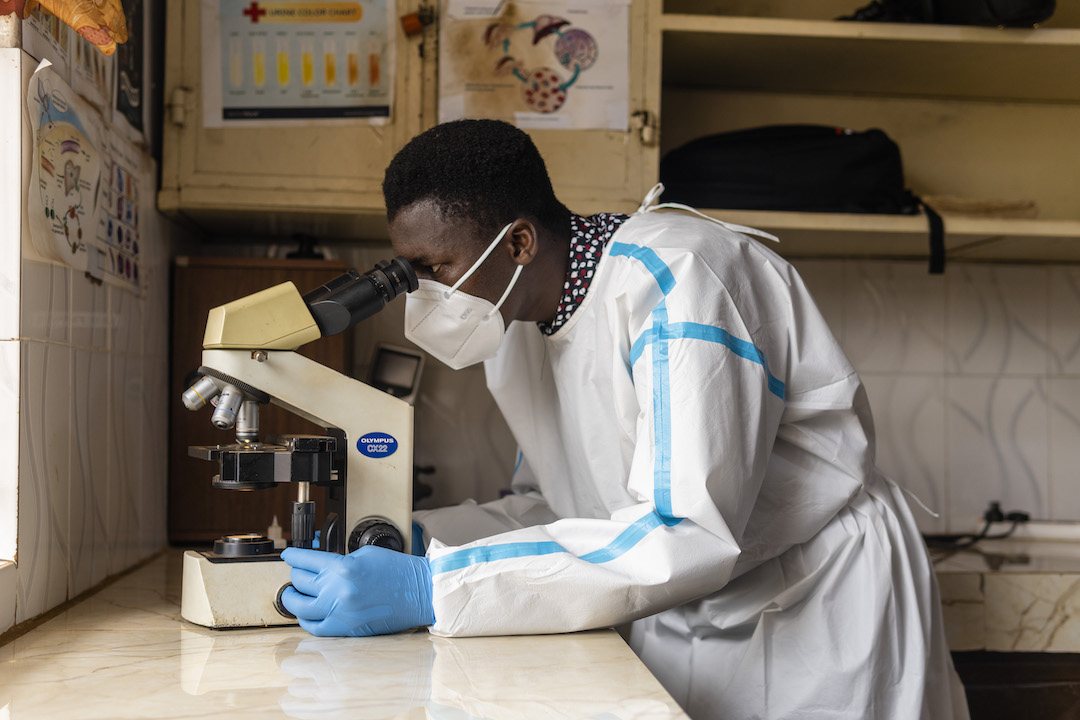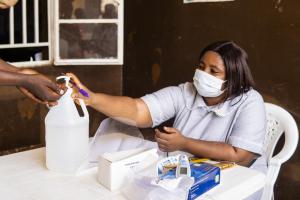Leveraging Ebola lessons to mitigate COVID-19 impact
Freetown ‒ With only 7766 confirmed cases of COVID-19 and 125 deaths, Sierra Leone’s achievements in the face of the global pandemic have their roots in the harsh lessons delivered by the Ebola outbreak of 2014–2016, which took 4000 lives.
“Sierra Leone was not prepared initially to handle the Ebola outbreak, which was the reason why we lost we lost so many lives,” says David Mattiya, a laboratory technician in the country’s capital, Freetown. “As a country we were able to handle COVID-19 because of the experiences we had from Ebola.”
“As a country we were able to handle COVID-19 because of the experiences we had from Ebola.” David Mattiya, laboratory technician
By the time the country reported its first COVID-19 case on 31 March 2020, Sierra Leone had already put in place proactive and innovative strategies to mitigate the impacts. These included stringent screening of anyone entering the country for early identification of potential cases, quarantine protocols, the installation of public handwashing facilities and community collaborations led by respected leaders.
In early 2020, the government established the National COVID-19 Emergency Response Centre, supported by District COVID-19 Emergency Response Centres. These centres, which mirrored the ones successfully employed during the Ebola outbreak, efficiently coordinated response efforts to combat the pandemic.
Drawing further from the Ebola experience, the Ministry of Health and Sanitation rolled out public health and social interventions to control the spread of the virus.
“Preparing for emergencies… will allow us to have healthy populations and detect outbreaks early without disrupting gains,” Dr Austin H. Demby, Minister of Health, Sierra Leone.
To support government efforts, WHO conducted a national capacity assessment for multisectoral COVID-19 response preparedness, facilitated training of four physicians on case management, and established capacity for screening at points of entry.
WHO also provided financial support to facilitate the successful implementation of public health and social interventions, enabling government to develop and implement a comprehensive national COVID-19 vaccination and deployment plan. The aim was to ensure a structured and organized approach to immunization, including strategies for effective implementation of the vaccination plan. This needed to take account of logistical considerations, prioritization of recipients, and vaccine distribution challenges.
WHO and other partners also supported the government by providing operational oversight for implementation. This included facilitating effective and efficient supervision and monitoring of health care facilities and staff, to ensure adherence to COVID-19 protocols, and optimal patient care and safety measures. These joint efforts contributed notably to the effective management of the COVID-19 crisis in the country.

The support by WHO and other partners played a pivotal role in accomplishing the goal of fully vaccinating at least 70% of the targeted population against COVID-19 by December 2022.
“WHO has been there from the start alongside other partners and working with the leadership of government,” says Innocent Nuwagira, acting WHO Representative in Sierra Leone. “We will continue to make sure that universal health coverage, health emergency preparedness and the people-centred approach are all tied up together to deliver the highest impact on health that we can achieve.”
The experiences from Ebola and the improvements made during the COVID-19 response has encouraged policy makers to strengthen emergency preparedness. “Preparing for emergencies and building a strong health system, good health care for everybody, and health security, will allow us to have healthy populations and detect outbreaks early without disrupting gains,” says Dr Austin H. Demby, Minister of Health in Sierra Leone.
